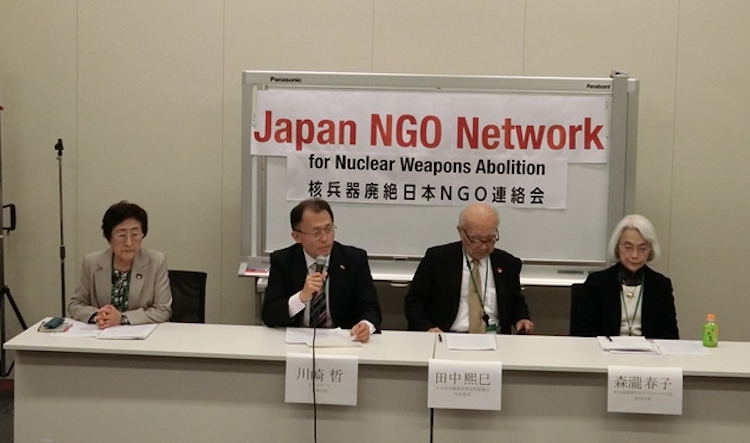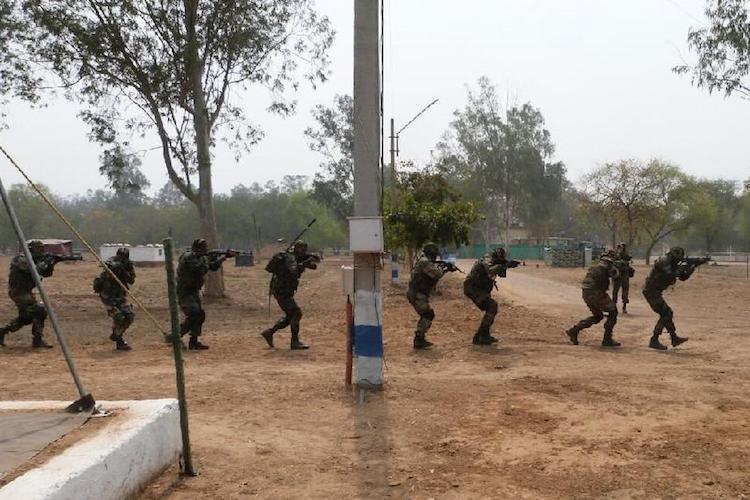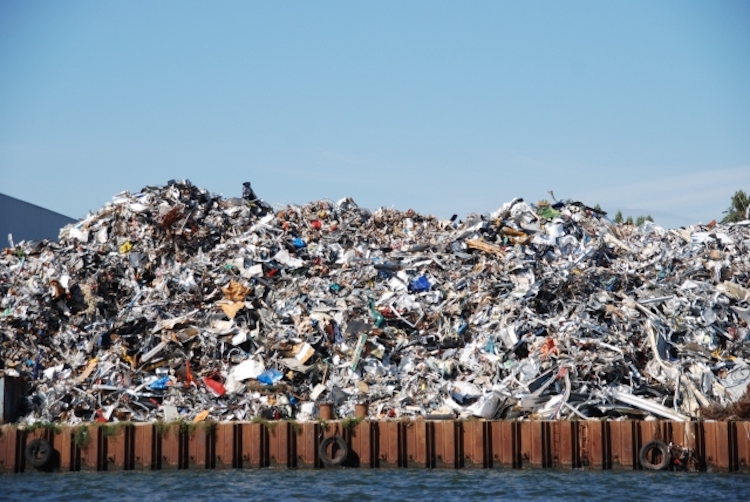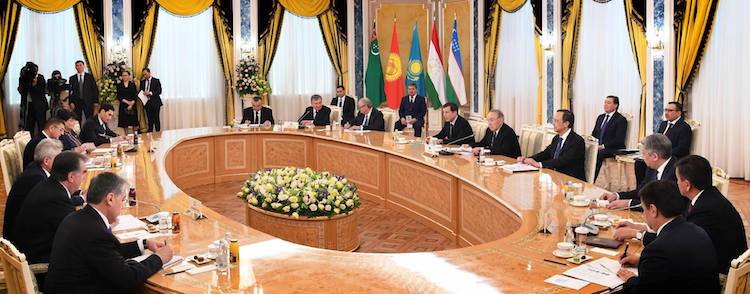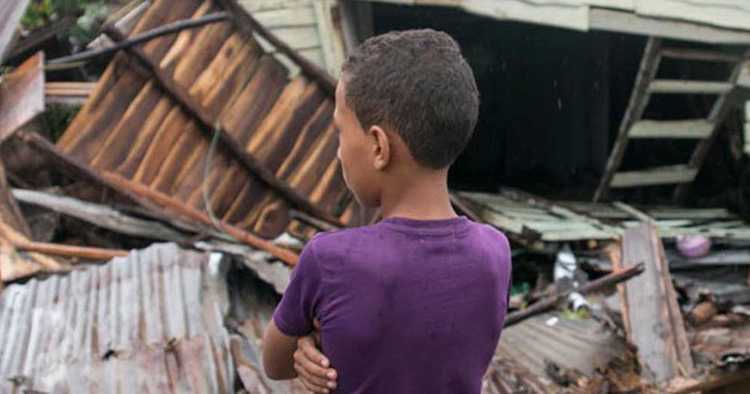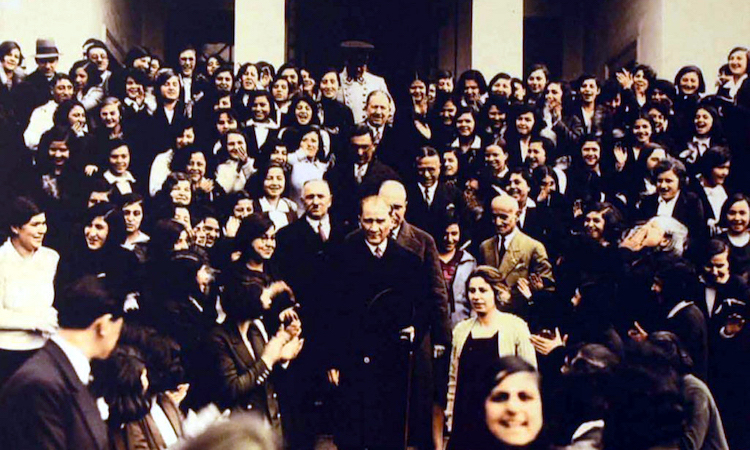By Katsuhiro Asagiri TOKYO (IDN) – Japan is coming under pressure from within to sign and ratify the UN Nuclear Ban Treaty, which acknowledges the “unacceptable suffering” of the hibakusha – survivors of hitherto the first ever atomic bombings in Hiroshima and Nagasaki in August 1945. 122 member nations of the United Nations adopted what […]
Campaign For Moving ‘Nuclear Weapons Money’ to Boost Peace
By J Nastranis NEW YORK (IDN) – While governments meet in New York for the first ever United Nations High-Level Conference on Nuclear Disarmament from May 14-16, 2018 campaigners for ‘zero nuclear weapons’ will be busy counting one million specially designed notes each of $1 million value, adding up to $1 trillion. The amount of […]
Kazakh Peacemakers Exchange Experience with Indian Partners
ALMATY (IDN | KazInform) – Kazakhstan militaries are taking peacemaking training in New Delhi jointly with Indian colleagues. The classes are taking place at the UN Training Center. The Kazakhstani peacemakers came to New Delhi to study the Indian experience to apply it in missions. Upon arrival they familiarized with the general provisions, structure and […]
Experts Stress Importance of UN High-Level Conference on Nuclear Disarmament
By Santo D. Banerjee NEW YORK (IDN) – The increasing fragility of international peace and security is accentuating the critical need for persistent dialogue and relentless diplomacy to deter multiple conflicts triggering nuclear confrontation, disarmament experts and campaigners say. Conflicts related to nuclear weapons, including in Northeast Asia, between the U.S. and NATO on the […]
Trump Ends Deportation Protection for Liberians in the U.S.
By Lisa Vives, Global Information Network NEW YORK | MONROVIA (IDN) – Liberians living in the U.S. since a devastating civil war that took 250,000 lives from 1989 until 1997 are now in the crosshairs of the current Trump administration which has terminated their protected status with effect from March 31, 2019. Some five thousand […]
UNIDO Helps Prevent E-Waste Eiffel Towers in Latin America
By Jaya Ramachandran VIENNA | QUITO (IDN) – Waste electrical and electronic equipment (WEEE), comprising old computers, televisions, fridges, mobile phones, and other appliances, also known as e-waste, is expected to reach 52.2 million metric tons by 2021. It is equivalent to the weight of more than 29 million passenger cars, and would suffice to […]
Bolton’s Policy Opinions Would Worsen Proliferation Dangers
By Daryl G. Kimball Daryl G. Kimball is Executive Director of the Arms Control Association. Following is the text of his statement on the choice of John Bolton, former U.S. Permanent Representative to the UN in New York, as President Donald Trump’s National Security Advisor. WASHINGTON, D.C. (IDN) – The United States already faces an […]
Central Asian Leaders Follow Up on Discussions During Kazakh Security Council Presidency
By Santo D. Banerjee NEW YORK (IDN) – When Kazakh President Nursultan Nazarbayev spoke at a high-level meeting of the United Nations Security Council on ‘non-proliferation of weapons of mass destruction: confidence-building measures’ on January 18, the Foreign Ministers of Central Asian countries attended the event. Kazakhstan convened the briefing in its capacity as the […]
Caribbean Faith Leaders Call for Debt Relief and More
By J C Suresh TORONTO (IDN) – Ahead of the next hurricane season in the Caribbean, faith leaders are calling for action from government leaders, the United Nations system, the International Monetary Fund (IMF) and regional development institutions. A statement signed and endorsed by 22 religious leaders from Grenada to Saint Lucia is urging the […]
Reflections on Turkey: From Mustafa Kemal To Recep Erdoğan
Viewpoint by Pier Francesco Zarcone* ROME (IDN) – Has Turkey changed under Erdoğan? The question may seem absurd due to the habit of considering Turkey a secular and Westernised country before Recep Erdoğan came to power. However, this consolidated image turns out to be false. There has been a change, but not in substance: what […]

